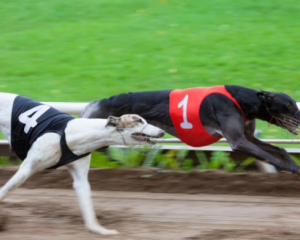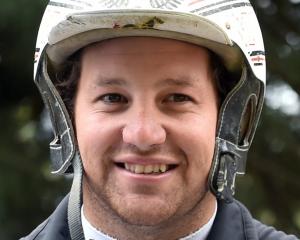
Christchurch’s Brent Williams is among five members comprising the board of the Racing Integrity Board, an amalgamation of the Judicial Control Authority for Racing and the Racing Integrity Unit, which officially launched today.
Establishing the RIB was among key industry reforms encompassed by the Racing Industry Act 2020.
The RIB’s core functions are compliance and enforcement, managing drug testing, animal welfare monitoring and regulation.
Williams has had a long association with the industry and served as a Harness Racing New Zealand representative on the JCA board before being appointed to the RIB by Robertson.
He is listed as a co-owner of well-performed three-year-old Off N Gone with HRNZ chief executive Gary Woodham.

Animal rights group Save Animals From Exploitation is angered by Williams’ selection.
“An authority body that is monitoring racing should be completely independent – anyone who profits from the racing of horses or dogs would fail to be objective or fair,” SAFE chief executive Debra Ashton said.
“No sector should be governed or monitored by those who stand to gain from the use of animals for gambling profits. Having a financial interest in a horse used for racing would compromise the judgement of any board member.
“This is an industry already under considerable public and Government scrutiny, an industry that has already faced reviews and questions about the transparency of their reporting, animal welfare standards, and track safety.”
In a statement to The Star Williams said: “It is not appropriate for me to comment specifically about any industry licence holder but I can confirm my wife and I have a 50 per cent ownership in a horse which is trained by Mr Dunn.
“We also own another as yet unraced horse trained by Craig and Aimee Edmonds.”
The father and daughter training partnership out of Motukarara were fined $9000 by the JCA after one of their horses returned a positive swab in 2016.
Williams’ son Tim is a leading reinsman who drives for the Woodend Beach-based Dunn stable, which is run by Robert’s son John.
John Dunn is Edmonds’ son-in-law.
Williams, who spent seven years on the JCA board, said he would be subject to the same conflicts management policy with the RIB.
“I will not be involved in consideration of any matter where there may be, or may be perceived to be a conflict of interest,” he said.

Earlier he asked for nominations from a range of groups including Thoroughbred Racing New Zealand, Harness Racing New Zealand, Greyhound Racing New Zealand, and TAB New Zealand.
The role was also advertised on the Department of Internal Affairs’ website and with the Institute of Directors.
New Zealand Equine Health Association executive adviser Dr Patricia Pearce also has a background in the industry, Robertson revealing she owns several equestrian sport horses.
She also breeds, prepares and races thoroughbred horses.
Pearce would not comment ahead of the board convening today.
The other board members are chair Sir Bruce Robertson QC, barrister Kristy McDonald QC and Penelope Mudford, a former chair of Rural Women New Zealand.
They are appointed through to June 30, 2024.
Robertson would not comment on Williams’ training connections but told The Star he was comfortable with him migrating from the JCA board.
“Mr Williams has been a member of the Racing Integrity System Establishment Board since September 2020, and in his role has been subject to the same requirements for the declaration of conflicts of interest, both as part of his appointment process, and as an appointed member of that board.”
Robertson said candidates on the short list had to complete and sign a Nomination and Declaration form, which includes a declaration of possible conflicts of interest, including ownership or interests in race horses.
“I have been informed of any conflicts of interest, and am confident Sir Bruce will manage any such conflicts appropriately. If a conflict cannot be managed I may then consider the suitability of the member’s continuing membership of the Board.”
National’s racing spokesman Ian McKelvie endorsed Robertson’s appointments.
“I believe the RIB as appointed by the Minister contains a good degree of experience in all matters relating to law, animal welfare and racing matters,” he said.
“In New Zealand it would be impractical to find people with the right degree of experience to effectively run the affairs for the RIU as set up without having an interest in racing, gaming or other potential conflicts.
Robertson was confident the RIB would police the industry effectively and enhance a reputation tarnished by harness racing dramas in Canterbury this year involving Mitchell Kerr and Jesse Alford, who were banned for life and seven years respectively.
Robertson said the RIB was designed to “ensure high standards of animal welfare, integrity and professionalism in the racing industry.
“This requires constant vigilance, which is why the new Racing Integrity Board is being set up to replace the current integrity system.
“New Zealanders expect racing to be safe for the animals involved and fair for punters. The Board will help provide this assurance, which can only be good for the racing industry.”
Former deputy commissioner of police Mike Clement, appointed as the RIB’s chief executive after ending a 42-year career in law enforcement in 2020, said it would be unrealistic for the board to comprise exclusively of non-racing members.
“It would be an unusual thing, I guess, if you hired a whole lot of people that had no interest at all in the industry,” said Clement, who worked two weeks as a reinsman for a North Canterbury trainer when he was 17.
He was also a part owner of a thoroughbred that never made it to the races.
“I’ll often flick on Trackside, I quite enjoy watching it but that’s the extent of it really. I don’t have any financial interest in horses, or ownership.”

“Wherever you happen to work, it’s important that if you think you’re conflicted over a decision you should make sure you’re not influencing the outcome. I’m confident that’ll be the case here,” he said, adding the board members are not involved in the prosecution process.
“There will be a line of sight from the board, but my own thoughts are the board wouldn’t be interfering.”
Clement said safeguarding animal welfare was paramount.
“We’ve got to make the perception that this industry has got it right when it comes to looking after the animals.
“I like to believe the vast majority of people fully engaged in the sport do the right thing and one or two make it not good for the rest. That’s our job to find them.”
The RIB’s launch takes place as several charges stemming from Operation Inca, a police inquiry into race fixing in the harness industry September 2018, continue to negotiate the judicial process.
Call to improve the sport’s image
Harness racing has been urged to clean up its act - and it's come straight from the horse’s mouth.
An industry-wide survey canvassing the views of almost 500 participants revealed several common themes, including the need to improve the sport’s image in Canterbury and beyond.
Concerns expressed in Harness Racing New Zealand’s latest communications and marketing survey follow in the slipstream of recent scandals encompassing the doping of horses and defrauding owners in the region.
In April harness racing trainer Mitchell Kerr was banned for life after being found guilty of a range of charges based on the duping of owners in New Zealand and Australia.
A month later horse racing trainer Jesse Alford was banned for seven years for doping offences, which included the first known use of the banned chemical formalin in New Zealand.
The substance is injected to treat internal bleeding but it is banned for use in the racing industry because it can affect a horse’s cardiovascular system.
An analysis of the responses by HRNZ staff found “clean up the industry” featured frequently throughout the survey.
There was also a call to hold ‘road show’ type events to entertain “full and frank” discussions with the wider harness racing community.
There was also a reminder to recognise harness racing as a “social enterprise” and not purely a gambling product.












